Dr. G. Viswanathan
Chancellor
Artificial Intelligence and Sustainable Manufacturing for Global Economy
Global Congress on Manufacturing and Management is a non-profit organisation governed by a board with one or two academic and industrial members from each participating country. The current membership spans over twenty-two countries from around the world. Besides providing a forum for leading researchers and industry partners to come together and exchange knowledge and views on global changes in manufacturing and management, GCMM conducts conferences every two years. GCMM has always attracted high-quality research papers and continues to serve as a central hub where the world's knowledge on manufacturing research is fused with industry strategy in a globalised market. Recent events that were held in Thailand (2024), Malaysia (2023), New Zealand (2022), UK (2021), Australia (2018), China (2016), India (2014), New Zealand (2012) and Thailand (2010), were highly successful and attracted delegates from over 25 countries. Accordingly, the 19th Global Congress on Manufacturing and Management (GCMM2025) will be conducted at Vellore Institute of Technology (VIT), Vellore, India
VIT was established with the aim of providing quality higher education on par with international standards. It persistently seeks and adopts innovative methods to improve the quality of higher education on a consistent basis.The campus has a cosmopolitan atmosphere with students from all corners of the globe. Experienced and learned teachers are strongly encouraged to nurture the students. The global standards set at VIT in the field of teaching and research spur us on in our relentless pursuit of excellence. In fact, it has become a way of life for us. The highly motivated youngsters on the campus are a constant source of pride. Our Memoranda of Understanding with various international universities are our major strength. They provide for an exchange of students and faculty and encourage joint research projects for the mutual benefit of these universities. Many of our students, who pursue their research projects in foreign universities, bring high quality to their work and esteem to India and have done us proud. With steady steps, we continue our march forward. We look forward to meeting you here at VIT.

TheUniversity of Southern Queensland(branded asUniSQ and formerly branded as USQ) is a medium-sized, regional university based in Toowoomba, Queensland, Australia, with three university campuses at Toowoomba, Springfield and Ipswich. It offers courses in law, health, engineering, surveying and built environment, the sciences, business, education, and the arts. The institution was established in 1969, renamed as University College of Southern Queensland in 1990 and finally the University of Southern Queensland in 1992. It operates three research institutes and seven research centres which focus on a wide range of business, agricultural, scientific, environmental, and technological issues. In 2017, the university won the international Green Gown award for its approach to sustainability focusing on renewable energy, waste reduction, water retention, and integration of sustainability into strategic planning.

Coventry University is a public research university in Coventry, England. The origins of Coventry University can be linked to the founding of the Coventry School of Design in 1843. It was known as Lanchester Polytechnic from 1970 until 1987, and then as Coventry Polytechnic until the Higher Education Act 1992 afforded the university status that year and the name was changed to Coventry University. It is the UK's fastest growing university and the country's fourth largest overall. It has two principal campuses: one in the centre of Coventry where the majority of its operations are located, and one in Central London which focuses on business and management courses. Its four faculties, which are made up of schools and departments, run around 300 undergraduate and postgraduate courses. Across the university there are 11 research centres which specialise in different fields.

Wroclaw University of Science and Technology is the leading scientific and educational centre in Poland with 33,000 students being educated by 2000 academic teachers in 16 faculties. Its position among technical universities in both Europe and the rest of the world is increasing every year. Development of the University is confirmed by research potential, didactics at the highest level, innovation and also cooperation with industry. The University educates specialists who are valued and sought after in the labour market.

Rajamangala University of Technology Krungthep (RMUTK) is a well-known technological university located in Bangkok, Thailand. Established in 2005, RMUTK is a government institution that aims to produce graduates with practical skills. The university is committed to developing and promoting technology and other academic fields. Highlights: RMUTK is known for its strong emphasis on practical skills. The university has a high graduate employment rate, demonstrating the effectiveness of its vocational focus. Academics Courses: RMUTK offers a wide range of courses in fields such as Engineering, Industrial Technology, Science and Technology, and Management Technology. Recruiters & Placements: RMUTK has a strong network of industry partners, providing students with ample opportunities for internships and employment. Facilities: The university boasts modern facilities including libraries, labs, hostels, and sports facilities. Campus Life and Events: RMUTK offers a vibrant campus life with various clubs and societies. The university also hosts several major events and festivals throughout the year.

Liverpool John Moores University is a distinctive, unique institution, rooted in the Liverpool City Region but with a global presence. Liverpool John Moores University is a vibrant community of over 23,000 students from over 100 countries, and it is integral to the life of the city, with a global approach in forging international partnerships to facilitate world-leading research and collaboration. It is one of the largest, most dynamic, and forward-thinking universities in the UK. LJMU is one of the highest climbers nationally in the 2014 Research Excellence Framework, with 60% of research classified as world-leading or internationally excellent. LJMU has the world's largest robotic telescope and a state-of-the-art maritime 360 simulator. LJMU was awarded “University of the Year” at the Educate North Awards 2017.

The University of Minho, founded in 1973, is one of the then named "New Universities" that, at that time, deeply changed the landscape of higher education in Portugal. Located in the region of Minho, known for its significant economic activity and by the youth of its population, the University of Minho is playing the role of development agent in the region. It offers number of UG and PG Programmes through ten Schools including School of Engineering and School of Medicine. With over 19,000 students (42% of which are postgraduate students) and with about 1300 professors and 600 employees, UM is one of the largest Portuguese universities.

Chancellor
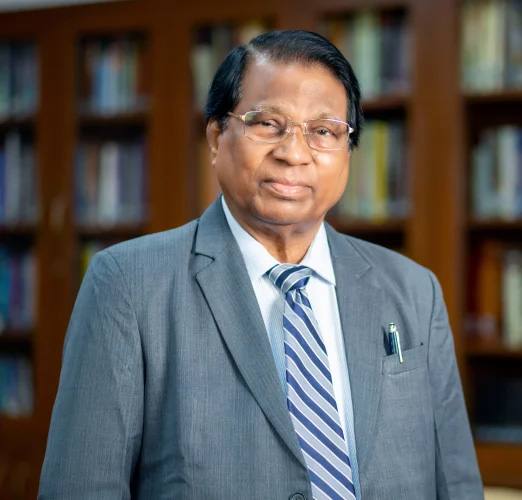
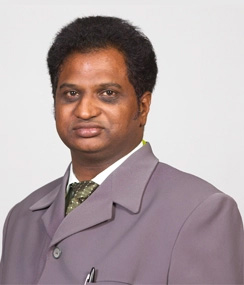
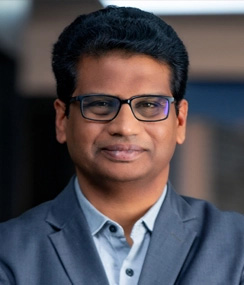
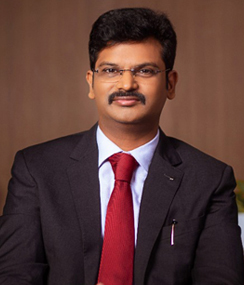
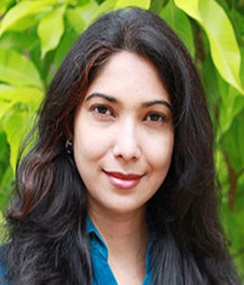
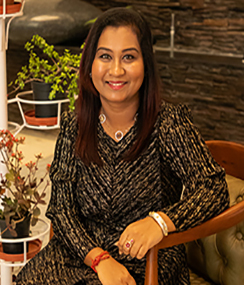
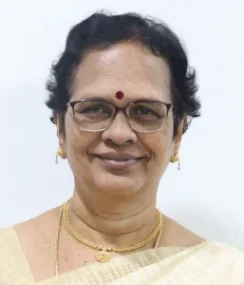
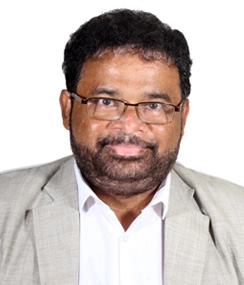
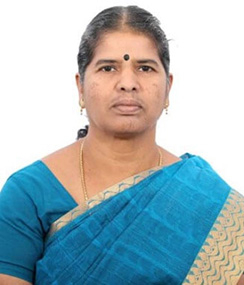
Dr. P. Kuppan, Dean-SMEC, VIT, Vellore, India
Dr. Nantha Gopal K Associate Dean, SMEC, VIT, Vellore, India
Prof.M. Anthony Xavior, VIT, Vellore, IndiaCONFERENCE
Prof.Prasad KDV Yarlagadda, University of Southern Queensland, Australia
Prof.Andre D L Batako, LJMU, UK
Dr. ArivazhaganAnbalagan, CU, UK
Prof.Jose Machado, UM, Portugal
Prof.SuthepButdee, RMUTK, Thailand
Prof.AnnaBurduk, WUST, Poland
Prof.ManikandanM, HOD, DDA, SMEC, VIT
Prof.PandivelanC, HOD, DME, SMEC, VIT, Vellore
Prof.GovindhaRasuN, HOD, DAE, SMEC, VIT,
Vellore
Prof.Jose S, HOD, DTEE, SMEC, VIT, Vellore
Prof.JeyapandiarajanP, SMEC, VIT, Vellore,
India
Prof.JoelJ, SMEC, VIT, Vellore, India
Chancellor, VIT, India
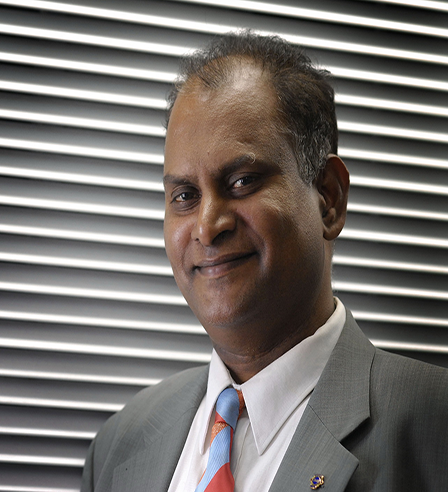
USQ, Australia
| Members | |
|---|---|
| Australia | Prof. Ayo Olofinjana, University of Sunshine Coast |
| Brazil | Dr. C. Brito, President, CRES |
| Canada | Dr. H. El Maraghy, University of Windsor |
| China |
Prof. Yongming Zhu, Zhengzhou University
Prof. David Wang, IAASET Dr. Shouqin Zhou, CIMC Co. LTD |
| Egypt | Dr. H. Elwany, Alexandria University |
| France |
Prof. S. Tichkiewitch, Domaine University
Prof. K. H. Adjallah, ENIM, Loraine University |
| Germany | Prof. Dr. Ing. P. Gümpel, FachochschuleKonstanz |
| Hungary | Prof. Géza Husi, Dean, University of Debrecen |
| India |
Prof. Krishnanand Lanka, NIT
Dr. Ravichandran, CEO, Lucas TVS L. Gopalakrishnan, PSG & Sons Charities |
| South Korea |
Prof. Y. T. Im, KAIST
Prof. Ill-Soo Kim, Mokpo National University |
| Malaysia | Prof. Walter CK Wong, Berjaya University |
| Mexico | Prof. C. Acosta, Universidaddelas America-Pueba |
| Netherlands | Dr. E. De Bruijn, University of Twente |
| New Zealand |
Dr. Sarat Singamneni, AUT
Prof. Mark P. Taylor, University of Auckland |
| Poland |
Prof.Wójs Arkadiusz, Wroclaw University of Science and Technology
Prof. Leszek A Dobrzanski, ASKLEPIOS, Gliwice. Prof. Anna Burduk, Wroclaw University of Science and Technology Prof. Korneliusz Pylak, Lublin University of Technology Prof. Katarzyna Antosz, Rzeszow University of Technology Prof. Justyna Trojanowska, Poznan University of Technology |
| Portugal | Prof. Jose Machado, University of Minho, Portugal |
| Singapore | Prof. Seeram Ramakrishna, NUS, Singapore |
| Slovenia | Prof. Janez Kopac, University of Ljubijana |
| Spain | Dr. E. Tovar, Universidad Politechnicade Madrid |
| Switzerland | Dr. T. Schelker, Swiss College of Agriculture |
| Thailand |
Dr. Pichai Janmanee Rajamangala University of Technology Krungthep
Dr. Suthep Butdee, Rajamangala University of Technology Krungthep |
| UK | Dr. Batako D. L. Andre, Liverpool John Moores University |
| USA |
Prof. K. S. Taraman, Lawrence Technological University
Prof. Lal Tummala, San Diego State University |
| Dr. Li Jinhui, HUST, China | Dr. Xue Chao-Gai, Zhengzhou University, China |
| Dr. Cao Hai-Wang, Zhengzhou University, China | Dr. Jeffrey CAI Yan-Ling, Zhengzhou University, China |
| Dr. J. Paulo Davim, University of Aveiro, Portugal | Dr. Michele LANZETTA, University of Pisa, Italy |
| Shri. Shaju Saleem, Bekaert Slatina SRL, Romania | Dr. Daniel Medyński, Witelon Collegium State University, Poland |
| Dr. Magdalena Dąbrowska, Witelon Collegium State University, Poland | Dr. Joanna Helman, Wroclaw University of Science and Technology, Poland |
| Dr. Joanna Kochańska, Wroclaw University of Science and Technology, Poland | Dr. Fethma M Nor, Universiti Teknologi Brunei, Brunei |
| Dr. Almusawi Husam Abdulkareem, University of Debrecen, Hungary | Dr. P. Ashwath, University of Cumbria, UK |
| Dr. N. Sasidharan, Wayland Additive Ltd., UK | Prof James Ren, Liverpool John Moores University, UK |
| Dr. Ariayan Ashkanfar, Liverpool John Moores University, UK | Dr. Tahsin Opoz, Liverpool John Moores University, UK |
| Dr. Xiaoxia Liu, Liverpool John Moores University, UK | Prof. Arnaud Duchosal, University of Tours, France |
| Dr. Phatchani Srikhumsuk, RMUTK, Thailand | Dr. Jirapol Klinbun, RMUTK, Thailand |
| Dr. Kamonpong Jamkamon, RMUTK, Thailand | Dr. Suppawat Chuvaree, RMUTK, Thailand |
| Dr. Theerawat Kumnorkaew, RMUTK, Thailand | Dr. P. K. Jain, ARCI, India |
| Mr. M. Ramalingam, IFB Automotive Ltd, India | Shri. Ananthakumar R, Sterlite Power Transmission Ltd., India |
| Shri. Thiyagarajan M, John Deere, India | Dr. J. Ramkumar, IIT Kanpur, India |
| Dr. A. Elaya Perumal, Anna University, India | Dr. T.P.D. RAJAN, CSIR-NIIST, India |
| Dr. Hari Singh, NIT Kurukshetra, India | Dr. S.R. Devadasan, PSG College of Technology, India |
| Dr. K. Mahadevan, Puducherry Technological University, India | Dr. H G Prashantha Kumar, Dayananda Sagar University, India |
| Dr. P. Ramkumar, IIT Madras, India | Dr. P. Kuppan, VIT, Vellore, India |
| Dr. Geetha Manivasagam, VIT, Vellore, TN, India | Dr. N. Arivazhagan, VIT, Vellore, India |
| Dr. C. D. Naiju, VIT, Vellore, India | Dr. Vasudevan R, VIT, Vellore, India |
| Dr. Denis Ashok, VIT, Vellore, India | Dr. Arun Tom Mathew, VIT, Vellore, India |
| Dr. Raja Annamalai, VIT, Vellore, India | Dr. Arivarasu M, VIT, Vellore, India |
| Dr. Mallikarjuna Reddy, VIT, Vellore, TN, India | Dr. Benedict Thomas, VIT, Vellore, India |
| Dr. SenthilKumaran S, VIT, Vellore, TN, India | Dr. Jayakrishna K, VIT, Vellore, India |

Dean (Science, Engineering and Digital Technologies)
University of Southern Queensland
Springfield Central, Australia
Prasad Yarlagadda is an accomplished academic and research administrator with a career spanning several decades, culminating in his current role as Dean of Engineering at the University of Southern Queensland. He holds a Ph.D. in Production Engineering from the Indian Institute of Technology, Bombay, M. E. (Production Engineering) from Bharathiar University and B. Tech (Mechanical Engineering) from Nagarjuna University, Vijayawada. Over the years, he has held numerous significant positions at Queensland University of Technology (QUT), including Head of the Discipline of Mechanical, Manufacturing, and Mechatronics Engineering, and Project Director for the "Airports of the Future" initiative. He has also served as a VAJRA Adjunct Professor at the Indian Institute of Science, Bangalore, and a Visiting Professor at VIT University, India.
Professor Yarlagadda's research is extensive and internationally recognized, focusing on areas like high energy-rate and rapid prototype manufacturing, and more recently, aviation security. He has published over 580 refereed publications and edited 20 journal issues and 22 conference proceedings. He successfully secured more than A$18 million in research funding from various national and international sources. His leadership and academic excellence have been recognized with numerous awards, including the Medal of the Order of Australia in 2016 for his contributions to the engineering profession and the Indian community, the Fryderyk Staub Golden Owl Award in 2007, and the QUT Outstanding Academic Contribution Award in 2001. He was also the recipient of the VAJRA Fellowship from the Government of India in 2017 and 2020. Received the prestigious Researcher of the Year 2020 in Advanced Materials from the International Association of Advanced Materials, Sweden and featured on the cover page, Advanced Materials Letters, Dec. 2020 issue. He serves as Editor-in-Chief, Journal of Engineering Technology, GSTF Publishers, Singapore and Deputy Editor-In-Chief, International Journal of Advances in Manufacturing and Materials Engineering.
Title: Current Trends in Generative AI, Smart Manufacturing Technologies and their Impact on Future of Manufacturing Engineering Education
Generative AI (GenAI) is reshaping the trajectory of advanced manufacturing, accelerating the shift from automated production lines to fully intelligent, self-evolving industrial ecosystems. As multimodal foundation models, agentic AI systems, and physics-informed generative models converge with cyber-physical systems, industrial IoT networks, and high-fidelity digital twins, manufacturing is entering an era where design, optimisation, and operational decision-making can be autonomously generated, validated, and deployed at unprecedented speed and scale.
This keynote explores the emerging technical frontier of GenAI-driven manufacturing. It illustrates how AI-augmented design synthesis, autonomous process planning, self-learning robotics, closed-loop optimisation, and cloud–edge orchestration are transforming core engineering functions. New capabilities, such as generative CAD/CAM, RL-enabled robotic dexterity, intelligent quality control using vision–language models, and hybrid simulation, AI pipelines are redefining productivity and precision across entire product lifecycles. At the same time, critical challenges demand attention: model reliability, real-world generalisation, data governance, cybersecurity vulnerabilities, AI safety in autonomous production systems, and the integration of GenAI into legacy industrial infrastructure.
Beyond technological transformation, GenAI is fundamentally altering the identity and competencies of the manufacturing engineer. Future engineers will not only manage systems, they will co-create with AI. They must possess deep engineering foundations while mastering AI-centric skills: algorithmic literacy, data engineering, model verification and validation, prompt engineering, autonomous-systems oversight, and the ability to orchestrate networks of intelligent agents. These skills must be complemented by systems thinking, creativity, ethical leadership, and the capability to reason about emergent behaviours in AI-enhanced production ecosystems.
Manufacturing engineering education must therefore undergo a strategic redesign. Curricula should embed GenAI across design, analysis, automation, and operations; incorporate immersive digital environments such as AI-driven simulations and intelligent digital twins; and cultivate human and AI collaboration skills through project-based, interdisciplinary learning. The keynote will argue that the future of global manufacturing competitiveness will depend on engineers who can integrate domain expertise with the generative, predictive, and autonomous power of advanced AI, creating sustainable, resilient, and continuously innovating manufacturing systems for the next industrial era.
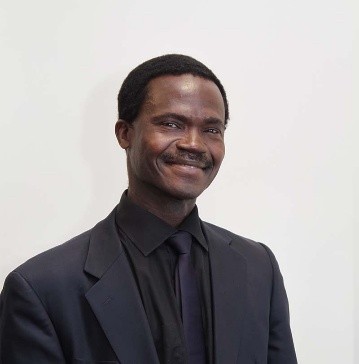
Reader in Sustainable Advanced Manufacturing Technologies,
The General Engineering Research Institute,
Liverpool John Moores University, UK
Dr Andre Batako obtained his Bachelor's degree in Mechanical Engineering in 1981 from Togo and his Master's degree in Manufacturing Technology (Machine Tools and Tooling) from the former Soviet Union in 1988. He is a Chartered Engineer (CEng) with over ten years of industrial experience and has received numerous academic and industrial awards in recognition of his excellence and contributions to both research and practice. Throughout his career, Dr. Batako has held various engineering positions, including mechanical engineer, production engineer, engineering technologist, and lead computer/software developer within the automotive manufacturing sector. After nearly a decade in industry, he returned to academia to pursue a PhD in the Dynamics of Vibro-Impact Systems at Loughborough University (UK), which he completed in 2004. He is currently a member of the General Engineering Research Institute in Liverpool John Moores University (UK), where he leads a research team in the Advanced Manufacturing Technology Laboratory. His work focuses on controlled vibration-assisted, high-efficiency machining of advanced and hard-to-machine composite materials.
Dr Batako invented the world's first purpose-built industrial Resonance High-Efficiency Deep Grinding (HEDG) machine tool. He maintains strong industrial collaborations with major partners such as Rolls-Royce, Jones & Shipman, Bosch, Fuchs, Airbus, Ford transmissions, and others. His international academic network spans Eastern Europe (Russia, Ukraine, Poland, Georgia, Germany, and others), Africa (Ivory Coast, Togo, Mali, Chad, Sudan), Asia (China, South Korea, Malaysia, Indonesia and Thailand). Dr Batako serves as a reviewer and editor for several international journals and publishing houses. He has published about 300 technical papers, conference proceedings, and journal articles, along with five books and four book chapters. He has successfully supervised 20 PhD students across the UK, Europe, and beyond. His research expertise covers machine tool design, cutting tools and machining processes, manufacturing technology, and the dynamics of vibro-impact systems. He is currently expanding his research portfolio into renewable energy technologies, sustainable bio-materials and laser applications in industrial manufacturing and agricultural systems.
Title: Sustainable Manufacturing, Ethics & Challenges for a True Circular Economy
The transition to a circular economy represents one of the most transformative ambitions of the 21st century, demanding not only technological innovation but also deep ethical reflection form the inception throughout the life of the innovation. Sustainable manufacturing lies at the heart of this transition, where material cycles are closed, waste becomes a resource, and value creation aligns with ecological and social well-being. Here, we explore the moral, technological, and policy dimensions of sustainable manufacturing within a circular economy framework. We interrogate questions of equity, transparency, and responsibility across global value chains, asking who benefits, who bears the costs, and how circularity can avoid reproducing existing inequalities. Equally, we examine the challenges of implementing circular principles at scale, from lifecycle design and supply chain traceability, materials, to energy use, data ethics, and regulatory coherence. Drawing on contemporary research, industry practices, and international policy frameworks such as the SDGs and the EU Green Deal, the presentation emphasizes the need for ethical governance, interdisciplinary collaboration, and innovation ecosystems that promote long term sustainability over short term gains. Ultimately, this is a call for a rethinking of manufacturing ethics, where circularity is not merely a technical fix, but a moral commitment to justice, stewardship, and resilience in the current geo-political era, in which human activity has the most detrimental influence on climate and natural habitat.
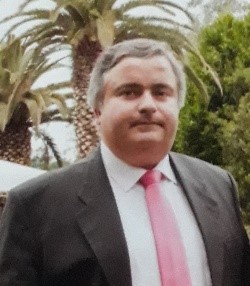
Mechanical Engineering Department,
School of Engineering,
University of Minho, Portugal
José Machado concluded Habilitation Title in February 2019 at University of Minho, Portugal. He received his PhD degree in Mechanical Engineering- Automation, from University of Minho, Portugal and, in simultaneous, from Ecole Normale Superieure de Cachan, France, in 2006. He is Deputy Director of MEtRICs Research Center and Associate Professor w/ Habilitation at Mechanical Engineering Department of University of Minho. He has authored, or co-authored, more than 250 refereed journal and conference proceedings papers. He coordinates and has coordinated - and participated as collaborator - in several Research and Technology Transfer Projects on Mechatronics and Automation domains. His main interests are related with Industry 4.0, more specifically, on the design and development of Cyber-Physical Systems; design and analysis of dependable controllers for obtaining dependable mechatronic systems; and mechatronic systems design with special focus on manufacturing industry and medical or biomedical applications, wellbeing and/or rehabilitation. He is member of Scientific Communities IEEE, IFAC and IFToMM.
Title: A Global Framework for Modern Mechatronic Systems Design
Modern mechatronic systems are increasingly complex, integrating mechanical, electrical, control, and software subsystems. To address these challenges, it is proposed a Global Framework for the Design and Industrial Implementation of Mechatronic Systems, extending the V-model proposed by VDI 2206:2004. The framework integrates model-based systems engineering (MBSE), digital twin technologies, simulation-driven design, and iterative validation to enhance multidisciplinary collaboration. Additional improvements address lifecycle management, data continuity, and compatibility with Industry 4.0 environments, increasing design robustness and traceability. The framework is illustrated through industrial case studies, demonstrating early detection of design inconsistencies, support for concurrent engineering, and enhanced system performance. This methodology offers a comprehensive, adaptable structure bridging conceptual design and industrial implementation, reflecting the latest developments in VDI/VDE 2206:2021.
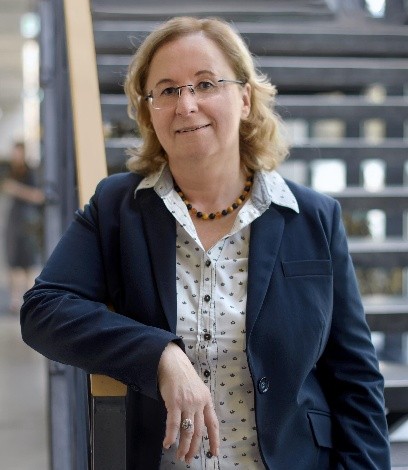
Faculty of Mechanical Engineering
Wroclaw University of Science and Technology, Poland
Anna Burduk is a distinguished Full Professor at the Faculty of Mechanical Engineering at Wrocław University of Science and Technology, where she is part of the Laser Technologies, Automation, and Production Management Department. A key researcher for the National Center for Research and Development and a member of the Polish Academy of Sciences, Professor Burduk has a robust and varied professional background. Her research interests are extensive, including the stability and optimization of production systems, the implementation of intelligent methods for production process control, risk evaluation in manufacturing systems, and the modeling and simulation of both manufacturing and business processes. Additionally, she focuses on information and material flow, and the digitalization and virtualization of production systems. She is the author of over 200 peer-reviewed research papers in impactful journals and has successfully supervised six PhD students. Her academic journey includes earning a Doctor of Philosophy with first-class honours in 2004, focusing on a "Methodology of application of simulation models in planning and evaluation of manufacturing processes". This was followed by a habilitation in 2014 and her appointment as a Full Professor in 2023. She has also been a member of several prestigious scientific organizations, including the Polish Academy of Sciences and the Association of Polish Engineers and Mechanics. Her leadership extends to serving as the Chairperson of the Wrocław Branch of the Polish Society for Production Management since 2016. Beyond academia, Professor Burduk has completed numerous national and international scientific projects, as well as projects commissioned by manufacturing companies.
Title: Smart and Resilient Manufacturing: Integrated Modelling and Risk Assessment through Intelligent and Simulation-Based Methods
In the era of Industry 4.0, smart and resilient manufacturing has become a strategic imperative for production systems operating in dynamic and uncertain environments. This presentation discusses the integration of production system development with new product design, emphasizing operational efficiency, adaptability, and market responsiveness. Traditional production management approaches are increasingly being enhanced by intelligent methods and simulation-based models that support real-time decision-making, predictive planning, and risk assessment. These tools enable manufacturers to optimize resource utilization, reduce time-to-market, and improve system flexibility. The proposed framework combines intelligent modelling techniques with resilience-oriented strategies to strengthen production systems against disruptions and variability. Through simulation-based analysis and data-driven insights, the study illustrates how smart and resilient manufacturing can drive sustainable performance and competitive advantage.
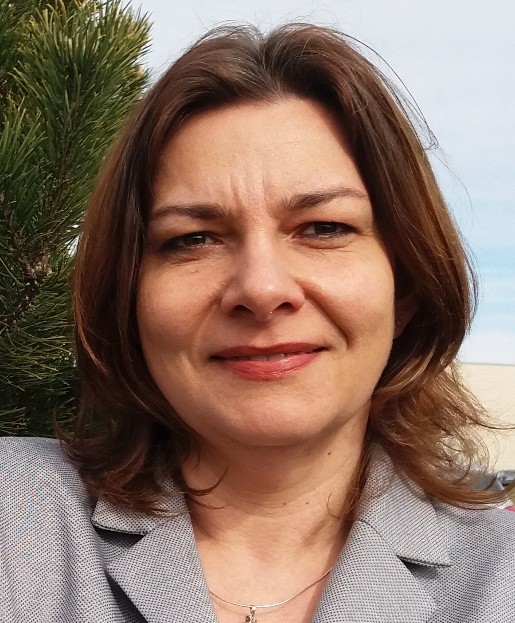
Department of Manufacturing Processes and Production Engineering,
Rzeszów University of Technology, Rzeszów, Poland
Professor Katarzyna Antosz is a Professor of Mechanical Engineering in the Department of Manufacturing Processes and Production Engineering at the Faculty of Mechanical Engineering and Aeronautics at Rzeszów University of Technology in Poland. She holds M.Sc. (2001), Ph.D. (2007) and D.Sc. (2019) degrees in Mechanical Engineering. Prof. Antosz is a member of the Committee on Production Engineering of the Polish Academy of Sciences, the Lean Learning Academy Polska, the Polish Production Management Association, the Association of Engineering, Project and Production Management (EPPM) and the Institute of Electrical and Electronics Engineers (IEEE). Prof. Antosz serves as Editor-in-Chief of the journal Technologia i Automatyzacja Montażu (Assembly Techniques and Technologies) and as a co-editor of books and special issues in scientific journals. Her specialisms include machine-learning methods and fuzzy logic for modelling, assessing, and improving processes; developing and implementing expert systems; and leading Six Sigma projects (DMAIC/Control) from problem definition through sustained control. She is the author of over 120 scientific publications, including monographs, journal articles, and peer-reviewed conference papers.
Title: Integrating Machine Learning with Six Sigma in Industrial Processes: Improving Project Outcomes
As industrial processes become more complex and diverse, machine learning (ML) and Six Sigma collaborate to enhance process effectiveness in a predictable and fact-based approach. This presentation will demonstrate how ML can systematically strengthen Six Sigma projects in industrial conditions by shortening the Measure and Analyse phases and stabilising results in the Control phase. It will also cover the integration of the DMAIC (Define–Measure–Analyse–Improve–Control) cycle with MLOps (Machine Learning Operations) practices. This includes the assessment of data maturity, feature engineering, model selection and validation, continuous monitoring of data and model drift, and the closing of the loop with SPC in the control plan. Selected case studies will be discussed. This talk will demonstrate that integrating machine learning and Six Sigma does not replace existing methodologies, but rather enhances and improves the effectiveness of the decision-making process, ensuring sustainable outcomes and replicable impact in contexts characterised by significant production variability.
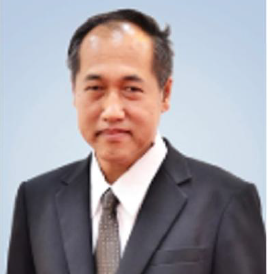
Rajamangala University of Technology Krungthep, Bangkok, Thailand
Suthep Butdee is a distinguished expert in Production Engineering, Automation, and Robotics with over two decades of academic and research excellence. He holds a Ph.D. in Manufacturing Engineering from Queensland University of Technology, Australia (1998), and currently serves as Associate Professor at Rajamangala University of Technology Krungthep (RMUTK), Bangkok, Thailand. Prof. Butdee's extensive career spans multiple leadership roles, including Vice President of Research and Development at KMUTNB (2007-2011), Director of Ph.D. and Master Programs in Production Engineering (2013-2022), and University Council positions at North Eastern University, Thailand. His expertise encompasses automation systems, robotics engineering, intelligent manufacturing, and supply chain management. As a prolific researcher, Prof. Butdee has authored over 113 peer-reviewed publications in prestigious international journals and conferences, focusing on case-based reasoning, fuzzy logic applications, neural networks in manufacturing, and sustainable production systems. He serves as editor for multiple conference proceedings and reviewer for leading engineering journals, including ASTRJ, MPER, and EAAI. Prof. Butdee has successfully managed numerous national programs for Thailand's Ministry of Industry, including manufacturing competitiveness improvement initiatives, supply chain management projects, and digital entrepreneurship development. Currently, he leads research in Industry 4.0 applications, AI-driven manufacturing systems, and sustainable production technologies.
Title: Agentic Automation model to Manufacturing, Modeling and Management with Fusion Adaptive Multi-reasoning System
Agentic automation is widely used for intelligent automation with agent based reasoning autonomously without rules. The multi-agent can interpret context, make decision real-time, learning by adaptation and learning from experiences in dynamic environment. It works well with machine learning and LLMs strategy by using work flow based system. The key principles are autonomy, adaptability, quick decision making, goal and result oriented learning and improvement, complex workflow management. However, searching method, reasoning inference procedure as well as prompt engineering and training are highly impacted by the quality and accuracy performance. Currently, pattern matching with text LLM is ultimately used for the Agentic AI and chat GPT platform. It bring about some mistakes and distracts to the correctly desired intention of the user. This presentation expresses the investigation of selecting multi-reasoning system including rule-based reasoning, case-based reasoning, model-based reasoning and probabilistic reasoning. The target goal of the Agentic automation tool is concentrated on manufacturing, 3d modeling simulation and management. Case studies are presented and discussed in details.
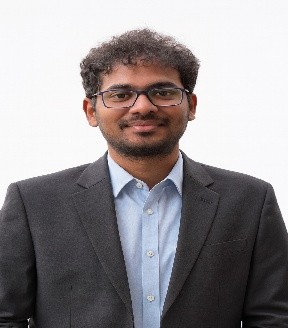
Institute of Engineering, Computing and Advanced Manufacturing
(IoECAM)
University of Cumbria, United Kingdom
Dr. Ashwath Pazhani is an Assistant Professor at the University of Cumbria, within the Institute of Engineering, Computing and Advanced Manufacturing (IoECAM) at the Barrow Campus, supported by BAE Systems. He is the founder and serves as the Head of the iHRS Research Group (Innovation in Hydrogen Research and Sustainability), focusing on hydrogen technologies and sustainable manufacturing. Dr. Ashwath holds a PhD in Materials and Manufacturing Engineering from VIT University, India. He is the Development and Draft Lead for Hydrogen Europe Research (HER) under the H2 Storage and Distribution theme. He has received an Exceptional Talent endorsement from the Royal Academy of Engineering, UK, under the Global Talent Route. Dr. Ashwath is a Chartered Engineer (CEng) and a member of the Institution of Mechanical Engineers (IMechE, UK) and the American Society of Mechanical Engineers (ASME, USA). His research achievements include internationally recognized publications on hydrogen storage materials, graphene-reinforced composites, and sustainable manufacturing. He has co-authored multiple peer-reviewed papers with leading academics and institutions in the UK and India. Dr. Ashwath's scholarly work has contributed to advancing hydrogen embrittlement research, next-generation materials and manufacturing for Energy, Healthcare and Nuclear applications. His contributions span across hydrogen technologies, advanced materials for Energy and Healthcare, additive manufacturing for Nuclear SMRs and hard to process materials in nuclear sector, and sustainability-led innovations. He has received recognition for promoting Women in STEM, Equality, Diversity, and Inclusion (EDI) through his collaborative academic initiatives. He has also supervised and mentored PhD and MSc students, fostering research excellence and academic development. His leadership and research excellence continue to enhance the University of Cumbria's national and international reputation in Sustainable Materials and NetZero Manufacturing for Energy, Healthcare and Nuclear applications.
Title: Emerging Pathways in Advanced Materials & Manufacturing for Sustainable and Safe Hydrogen Storage & Distribution
The global transition to Net Zero demands scalable, safe, and sustainable solutions for hydrogen storage and distribution — critical enablers for future clean energy systems. Exploration of advanced materials and manufacturing technologies to accelerate the realisation of next-generation hydrogen infrastructure. The session will provide insights about the breakthroughs in lightweight composite materials, graphene-reinforced metal matrix systems, and engineered aluminium–lithium alloys designed for high-capacity and cryogenic hydrogen storage. Cutting-edge manufacturing methods, including additive manufacturing, NetZero technologies and post-processing, and precision fabrication, will be highlighted for their role in enhancing structural integrity, thermal management, and lifecycle performance. A holistic perspective will be provided, connecting fundamental materials design with system-level considerations such as recyclability, environmental impact, and circularity. By bridging materials innovation, manufacturing excellence, and sustainability strategies, this keynote will offer a forward-looking vision for hydrogen storage and distribution systems that are safe, efficient, and environmentally responsible - supporting global hydrogen economy ambitions.
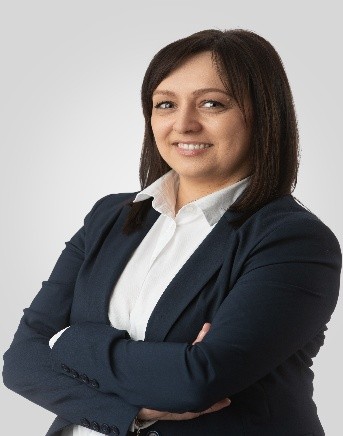
Faculty of Mechanical Engineering,
Poznan University of Technology
Poznan, Poland
Dr. Justyna Trojanowska is a distinguished Assistant Professor in the Department of Management and Production Engineering at Poznan University of Technology, Poland, where she has been advancing research in production management and smart manufacturing systems since 2019. She currently serves as Vice-Dean for Cooperation with Industry at the Faculty of Mechanical Engineering and holds the prestigious position of Series Editor for Lecture Notes in Mechanical Engineering at Springer Nature Switzerland AG. Dr. Trojanowska's expertise encompasses digitalization in manufacturing, production process optimization, and industry-oriented problem solving. Her research has directly impacted major Polish companies across mechanical engineering, automotive, and medical industries, including collaborations with Domex, Amica, Ster, and Fabryka Armatur Swarzędz. She has successfully managed multiple international projects funded by the Polish Ministry of Science, National Agency for Academic Exchange, and European Commission, focusing on innovation in manufacturing technologies and academic cooperation. As a prolific researcher with an h-index of 21 (Scopus) and 15 (Web of Science), Dr. Trojanowska has authored numerous peer-reviewed publications in high-impact journals including Applied Sciences, Machines, and Processes. Her recent publications focus on digitalization trends, smart production systems, flexible fixtures development, and asset management systems. She has co-authored several books with Springer, including "Fundamentals of Manufacturing Engineering Using Digital Visualization" and "Augmented Reality for Engineering Graphics."
Title: Industry 5.0: Where Innovation Meets Collaboration
As manufacturing evolves beyond the boundaries of automation and efficiency, Industry 5.0 emerges as a new paradigm centred on human-centricity, system resilience, and intelligent collaboration. This approach not only redefines how we think about production but also opens space for a deeper, more strategic dialogue between science and industry. At the heart of this transformation lie digitalisation, the Industrial Internet of Things (IIoT), and data-driven decision-making — technologies that enable the creation of agile, responsive, and integrated innovation ecosystems. In this keynote, how industrial strategies can be directly supported by academic research will be explored. Examples will be shared of collaborative projects in which tangible technological and organisational benefits have been delivered through partnerships between universities and enterprises. The means of building lasting relationships based on trust, shared goals, and long-term value will also be discussed through joint research, talent development, and shared infrastructure. Industry 5.0 is not merely a technological shift. It is an invitation to embrace a new model of collaboration, where innovation is born at the intersection of people, purpose, and partnership.
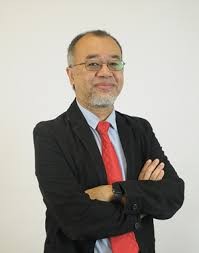
Department of Mechanical and Manufacturing Engineering
Faculty of Engineering and Built Environment
Universiti Kebangsaan Malaysia
Professor Ir. Dr. Shahrum Abdullah is a leading expert in structural durability and integrity at Department of Mechanical and Manufacturing Engineering, Universiti Kebangsaan Malaysia (UKM), where he leads the Computational and Experimental Mechanics (CEM) Research Group. His research focuses on the fatigue and fracture behaviour of metallic structures, combining advanced laboratory testing with digital engineering tools such as experimental signal analysis, finite element modelling, and machine-learning-based data-driven prognostics. Over the years, Professor Abdullah has successfully led numerous research projects funded by national agencies and industry partners, delivering practical solutions for damage evaluation and life assessment of engineering components. He has published extensively in high-impact journals and continues to advance the field of engineering durability, such as promoting safer, longer-lasting, and more sustainable designs for materials and structures.
Title: Understanding Engineering Durability: Insights into Material and Structural Failure
This keynote explores the understanding of engineering durability through the integration of failure assessment, damage mechanics, and practical fatigue life evaluation, ensuring that materials and structures remain reliable throughout their service life. Fatigue and fracture remain the dominant causes of failure in mechanical systems, particularly as the pursuit of sustainable designs pushes metallic components to their performance limits. Traditional fatigue prediction methods often fail to capture the complexity of real-world loading, multiaxial stress states, and evolving microstructural damage. To address these challenges, the presentation introduces approaches that combine strong theoretical foundations with advanced data analytics. Automotive case studies illustrate how continuous fatigue testing and in-service monitoring enhance the understanding of structural health. One highlighted example focuses on the concept of fatigue entropy in components manufactured from additively produced aluminium alloys, where damage growth is interpreted as a thermodynamic process integrated with a meaningful machine learning approach. When coupled with neural network modelling, entropy-based indicators enable earlier detection of damage and provide more accurate predictions of remaining life. It is also worth highlighting the suitability of data-driven durability assessment frameworks that transform the monitoring and prediction of structural performance, leading to safer, longer-lasting, and more sustainable engineering solutions.
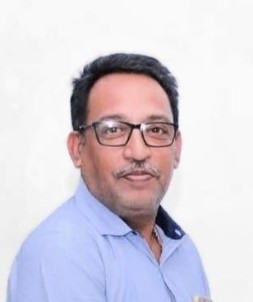
Department of Mechanical Engineering
Birla Institute of Technology Mesra,
Ranchi, Jharkhand- 835215, INDIA
Mob: +91–9431597463
E mail: kkumar@bitmesra.ac.in, kaushik.bit@gmail.com
Kaushik Kumar holds a Ph.D. in Engineering from Jadavpur University, India, an MBA in Marketing Management from Indira Gandhi National Open University, India and a Bachelor of Technology from Regional Engineering College (Now National Institute of Technology), Warangal, India. For 11 years, he worked in a manufacturing unit of Global repute. He is currently working as a Professor in the Department of Mechanical Engineering, Birla Institute of Technology, Mesra, Ranchi, India. He has 24 Years of Teaching and Research Experience. His research interests include Composites, Optimization, Non-Conventional Machining, CAD / CAM, Rapid Prototyping and Quality Management Systems towards product development for societal and industrial usage and has received 50+ patents for them, many of which are under consideration for donation to Start-ups and Industrial Institutions through Jharkhand Small Industries Association (JSIA). He has published 60+ Books 100+ Book Chapters and 200+ Research Papers in peer-reviewed reputed national and international journals. Kaushik has also served as Editor–in–Chief, Series Editor, Guest Editor, Editor, Editorial Board Member and Reviewers for International and National Journals. He has been felicitated with many awards and honours including Distinguished Alumnus Award for Professional Excellence 2023 under Academic and Research from National Institute of Technology, Warangal, India. He has also received Sponsored Research and Consultancy Projects of more than 1 Crore from Govt. of India and abroad.
Title: Advances in Additive Manufacturing– Journey From 2d To 6d
With globalization of market and advances in science and technology, the life span of products has shortened considerably. For early realization of products and short development period, engineers and researchers are constantly working together for more and more efficient and effective solutions. The most effective solution identified has been usage of computers in both designing and manufacturing. This gave birth to the nomenclature CAD (computer-aided design) and CAM (computer-aided manufacturing). Researchers coined the concept as rapid prototyping. In contrast to prototyping, rapid prototyping is a group of techniques used to quickly fabricate a scale model of a physical part or assembly using three-dimensional CAD data. Construction of the part or assembly is usually done using 3D printing or “additive or subtractive layer manufacturing” technology. The first methods for rapid prototyping became available in the late 1980s and were used to produce models and prototype parts. Today, in the era of I 4.0, they are used for a wide range of applications and are used to manufacture production quality parts in relatively small numbers. The journey starts with 2D printing, then 2.5D, 3D, 4D and currently 5D. In engineering applications, prototype for concept evaluation and prototype for functional evaluation will be discussed. The talk also introduces the technique of generating human organs from live cells/tissues of the same human being named 3D BIOPRINTERS, hence ensuring low rejection rate by the human body. But in this regard, it is well stablished that rapid prototyping techniques are for tailor-made products and not for mass manufacturing, hence some enlightenment has been focused towards mass manufacturing of rapid prototyped products.

Institute for Advanced Manufacturing and Engineering Coventry University, UK
Danijela Rostohar is an Associate Professor in Laser Processing at Coventry University and part of the University's Institute for Advanced Manufacturing and Engineering (AME), with extensive experience in laser–matter interaction and industrial laser applications. Following a PhD in spectroscopy at Stockholm University and postdoctoral work across Europe, she has led the development of advanced laser processing laboratories, including high-TRL stations for Laser Shock Peening and Laser-Induced Damage Threshold testing. Her work has contributed to the specification of next-generation high-power laser systems, record-speed multi-beam surface structuring, and a patent on improving additive-manufactured gears. Her current research focuses on spatial and temporal beam shaping, digital twins integrating physics-based and AI/ML models, and the implementation of laser-based processes in industrial environments. She actively collaborates on international projects and supervises postgraduate researchers.
Title: Steps towards Digital Twin for laser- based additive manufacturing
Digital Twins in laser-based additive manufacturing rely on high-quality data and strong physical understanding before meaningful computational tools can be applied. This talk highlights essential steps in data collection—such as monitoring energy distribution, melt-pool behaviour, thermal history, and resulting microstructure—and why calibration, synchronisation, and traceability are crucial. It also outlines the physical models needed to reinforce this data, including heat transfer, stress development, phase changes, and defect formation. Together, these foundations enable more reliable process prediction, improved component performance, and progress toward a robust Digital Twin ecosystem.

Title: Manufacturing and Materials 4.0: Digital Modeling, ML &, Gen AI- Accelerating Hydrogen Transportation and Storage for Net Zero Resilient Infrastructure
Dr. Arivazhagan Anbalagan (Ari) is an Assistant Professor (Research) at the Centre for Manufacturing and Materials, The Institute for Advanced Manufacturing and Engineering (AME), Coventry University, UK. He specializes in Digital Manufacturing and Materials 4.0, with research focused on Digital Modeling, Machine Learning, and Generative AI for Manufacturing and Materials 4.0, particularly targeting hydrogen transportation and storage for resilient infrastructures.
With over 17+ years of combined industry and academic experience, Ari's expertise spans Industry 4.0, Materials 4.0, Digital Twins, Cyber-Physical Systems, AI-driven hydrogen embrittlement analysis, and Advanced manufacturing technologies. He has led and contributed to major projects funded by UKRI, EPSRC, Innovate UK, Horizon Europe, FP7, and the British Council, delivering impactful solutions for sustainability, cost reduction, and process optimization.
A Chartered Engineer (IMechE, UK), Six Sigma Green Belt holder (from GE), Software Programmer - Ari is a UK Principal Investigator for British Council UKIERI project (UK–India collaboration with VIT) on Generative AI-based prediction of hydrogen embrittlement in welded and 3D-printed parts, integrating SEM imaging with synthetic image generation. His contributions to projects such as EPSRC CLEAN Futures and as Co-I's in Horizon Europe calls underscore his commitment to advancing digitalization, hydrogen technologies, manufacturing & materials 4.0 driving resilient infrastructure and sustainable innovation.

Associate Professor
Departemen Teknik Mesin, Kampus ITS,
Sukolilo- Surabaya (60111
Indonesia
Dr. Ir. Bambang Arip Dwiyantoro, ST., M.Eng., IPM, ASEAN Eng., is an Associate Professor at the Department of Mechanical Engineering, Institut Teknologi Sepuluh Nopember (ITS), Surabaya. He earned his Bachelor's degree (ST) and Professional Engineer (Ir) qualifications from ITS, and obtained his Master's and Doctor of Philosophy (Dr. Phil) degrees in Mechanical Engineering from the National Taiwan University of Science and Technology, Taipei. Since 2002, he has been actively involved in teaching and research at ITS, and has held several academic leadership positions, including Head of the Undergraduate Program in Mechanical Engineering (2016–2020) and Deputy Head of Department of Mechanical Engineering (2020–2025). His research interests include new and renewable energy, computational fluid dynamics, thermodynamics applications, micro- and nano-fluidics, power generation systems, and maintenance management. He can be contacted at +62 812-3255-3939 or via email at bambangads@me.its.ac.id.
Title: Thermal Performance Optimization of Mosquito Hotend through Heat Sink Geometry Modification in FDM 3D Printing
Additive manufacturing continues to reshape modern production by enabling customized, lightweight, and complex components to be fabricated with unprecedented design freedom. Among the various additive manufacturing methods, Fused Deposition Modeling (FDM) remains the most widely adopted due to its accessibility and material versatility. However, despite its maturity, FDM still faces persistent technical challenges most notably, hotend clogging caused by uncontrolled heat transfer within the extrusion system. This issue not only disrupts the continuity of the printing process but also compromises dimensional accuracy and surface quality, limiting the industrial scalability of FDM. This keynote explores a comprehensive thermal analysis of the Mosquito Hotend, focusing on how heat sink geometry influences temperature stability and the likelihood of clogging. Through computational simulations, three fin geometries: standard, rectangular, and circular were evaluated to examine heat dissipation performance and airflow interaction. The results reveal that elevated heat sink temperatures increase filament temperature in the cold zone, extending the transition region and promoting premature filament softening. Furthermore, asymmetric temperature distributions lead to non-uniform melting, causing extrusion instability.
Among the tested configurations, the circular fin design exhibited superior cooling efficiency due to enhanced convective heat transfer and higher airflow velocity around the fins. This design maintained a lower and more uniform temperature across the cold zone, effectively mitigating heat creep and reducing the risk of clogging. Ultimately, the findings underscore the critical role of heat sink design in achieving thermal stability and printing reliability in FDM systems. By optimizing hotend geometry, manufacturers can significantly improve extrusion consistency, print quality, and process sustainability. This keynote highlights how thermal design innovation can drive the next generation of high performance, industrial grade 3D printing technologies.

Assistant Professor
Materials Science and Engineering Research Laboratory,
Ateneo de Manila University, Loyola Heights Campus
Title: From Fibers to Function: Electrospun Materials for Clean Energy and Environmental Applications
Electrospinning provides a versatile and scalable route for designing micro- and nanofiber materials with precisely controlled morphology, porosity, surface chemistry, and architecture. This keynote explores how these nonwoven fiber networks can be engineered to form structures that enable significant advancements across air filtration, photocatalytic water-remediation systems, solar-cell interfaces, and next-generation energy-storage technologies. The talk will explore how electrospun fibers can be modified to optimize air filtration properties, solar cell efficiency and improve battery separator functionalities. By drawing examples from our group's work on electrospun membranes, solar interfaces, and separator development, this presentation demonstrates how fiber-level design can drive cleaner, safer, and more efficient energy and environmental technologies, reinforcing electrospinning's role as a transformative platform for the clean-energy transition.
Papers are encouraged on all topics given under the following domains, but not limited to:
All the manuscripts submitted to GCMM2025 will be subjected to the standard peer review process as per the Publisher's policy and will be published in any one of the following:





Click the below button to submit your papers
Paper Submission link
| Registration Fee | |
|---|---|
| Indian Authors | Foreign Authors |
| Authors (First Paper): Rs. 15000/ - + 18% GST | International Authors (First Paper): 250 USD |
| Same Registering Author (Second paper): Rs. 12000/- + 18% GST | Same Registering International Author (Second paper): 200 USD |
| Accompanying Co-Author(s): Access to conference venues, food and snacks, conference Kit and participation certificate): Rs. 2500/- per accompanying co-author + 18% GST | Accompanying International Co-Author(s): Access to conference venues, food and snacks, conference Kit and participation certificate): 50 USD |
The Conference Registration Fee Payment Link (Online) will be shared with the authors/delegates as per the schedule. No other mode of payment is acceptable. Spot Registration is not permitted
Last Date for Abstract Submission
Last Date for Full Manuscript Submission
Conference Registration Begins
Conference Registration
Conference Dates

Vellore Institue of Technology (VIT)
School of Mechanical Engineering(SMEC)
Vellore Campus
Vellore- 632 014
Tamilnadu, India
Prof. Jeyapandiarajan P
School of Mechanical Engineering(SMEC), VIT, India
Mobile :+91 8870756512
Prof. Joel J
School of Mechanical Engineering(SMEC), VIT, India
Mobile :+91 9003509595
gcmm@vit.ac.in